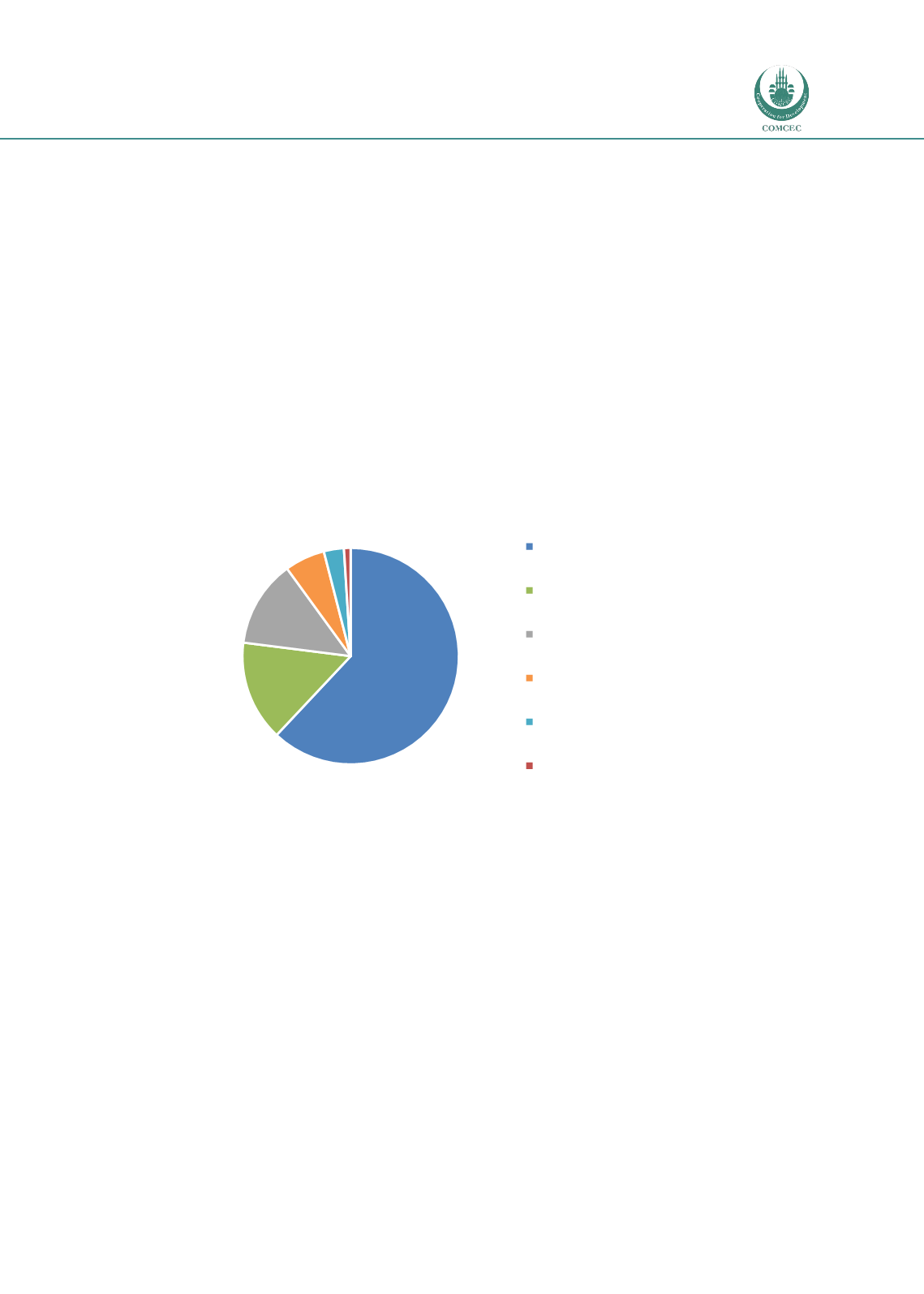

Promoting Agricultural Value Chains
In the OIC Member Countries
101
area planted) who deliver the produce to the nearest collection centres. Several NGOs, such as
Wild Asia, have programmes in place to provide technical support, training and capacity
building to groups of independent smallholders (Nagiah & Azmi, 2012).
The second category is comprised of slightly larger farmers who are often organised in
government schemes, such as FELDA (13 percent), FELCRA (3 percent) and RISDA (1 percent).
These also organise the collection and processing of palm oil from smallholders. Each of the
government schemes also operates large scale plantation companies in parallel, especially
FELDA who is the largest single upstream actor. The majority of production area, however, is
held by private estates (62 percent). These vary in size, from a few 100 ha to more than
100,000 ha (Cheng, 2002). High degrees of vertical integration can be observed, as all estates
have their own nurseries, R&D departments, and infrastructure for milling. Many of the
present day plantations have their beginnings in the colonial era but nowadays only very few
companies have substantial or controlling foreign ownership (Cheng, 2002). The main
companies are FELDA, United Plantations, IOI Corporation, and Sime Darby.
Figure 5-16 Distribution of oil palm on total planted area by category of growers, 2014
Source: MPOB, 2015
Abbreviations: FELDA: Federal Land Development Authority; FELCRA: Federal Land Consolidation and
Rehabilitation; RISDA: Rubber Industry Smallholders’ Development Authority
Several of the Malaysian estate companies have recently invested in downstream assets
abroad, initially in neighbouring countries such as Indonesia (where Malaysian firms now own
25 percent of the palm oil acreage) and Papua New Guinea. More recently there has been a
move to invest in plantations in West and Central Africa, such as Sierra Leone, Liberia, the
Democratic Republic of Congo, and Cameroon.
Besides the production of crude palm oil, many estate companies are also involved in the
downstream part of the chain, including palm oil refining, edible oil production, and
manufacturing of basic oleo chemicals. This is due to the higher margins which can be achieved
in the downstream value chain, as compared to the production level (e.g. El Fegoun, 2015).
Therefore, a shift can be observed from general refined products to more specialised value
added products. While downstream innovation used to be driven by oil refining hubs like the
USA, Singapore and Europe, Malaysian companies have recently started investing in R&D
centres at both firm and industry levels (Belai et al., 2011). Malaysian companies have also
62
15
13
6
3
1
Private estates
Independent smallholders
FELDA
State schemes/government agencies
FELCRA
RISDA

















